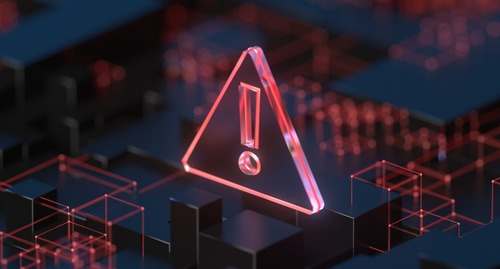
Cyber insecurity remains among the top 10 risks globally, according to the latest report from the World Economic Forum, amid growing inequity and increasing worries over cybercrime.
Released ahead of the World Economic Forum Annual Meeting 2024 in Switzerland, the Global Risks Report was developed collaboratively with the company Accenture to chart industry experts’ and executives’ feelings on cyber trends. Heading into 2024, the number of organizations with the minimum viable cyber resilience fell 30 percent compared to the same time last year, with small and medium-sized companies in particular falling behind. This inequity, the report noted, was accelerated by macroeconomic trends, industry regulation, and early adoption of new technologies by some organizations, which have allowed larger companies to surge ahead.
Several areas united all groups, though. For one, the world is interconnected, meaning no one is completely safe from cybercrime, no matter the preparation. Further, cyber skills and talent face major shortages, and only 15 percent of surveyed organizations showed optimism about that improving in the next two years.
“As the cyber realm evolves in response to emerging technologies and shifting geopolitical and economic trends, so do the challenges that threaten our digital world,” Jeremy Jurgens, managing director of the World Economic Forum in Switzerland, said. “We urgently need coordinated action by key public-private stakeholders if we are to collectively address these complex, ever-evolving threats and build a secure digital future for all.”
Emerging technologies such as artificial intelligence (AI), while experiencing popularity in the headlines, may be something to watch. Still, few experts expect much to come of it in the short term. Less than one in 10 of the respondents stated that generative AI might help defenders over attackers in the next two years. However, about half of those surveyed said it would have the most significant impact on cybersecurity in the same period. About the same number of experts are worried about its benefits to cyber criminals with things like phishing, malware, and deepfakes.
“No country or organization is spared from cybercrime, yet many are direly underequipped to effectively face the threats, and we cannot have effective global response mechanisms without closing the capacity gap,” Jürgen Stock, Secretary-General of INTERPOL, said. “It is crucial that key stakeholders work collaboratively towards immediate, strategic actions that can help ensure a more secure and resilient global cyberspace.
Still, there was some reason to hope. The report noted that cyber resilience is becoming more common as a factor for organizational risk management, and companies are becoming more aware of the importance of cybersecurity.




